Jakarta Governor to Sharpen Focus of Scrutiny Ahead of New Normal
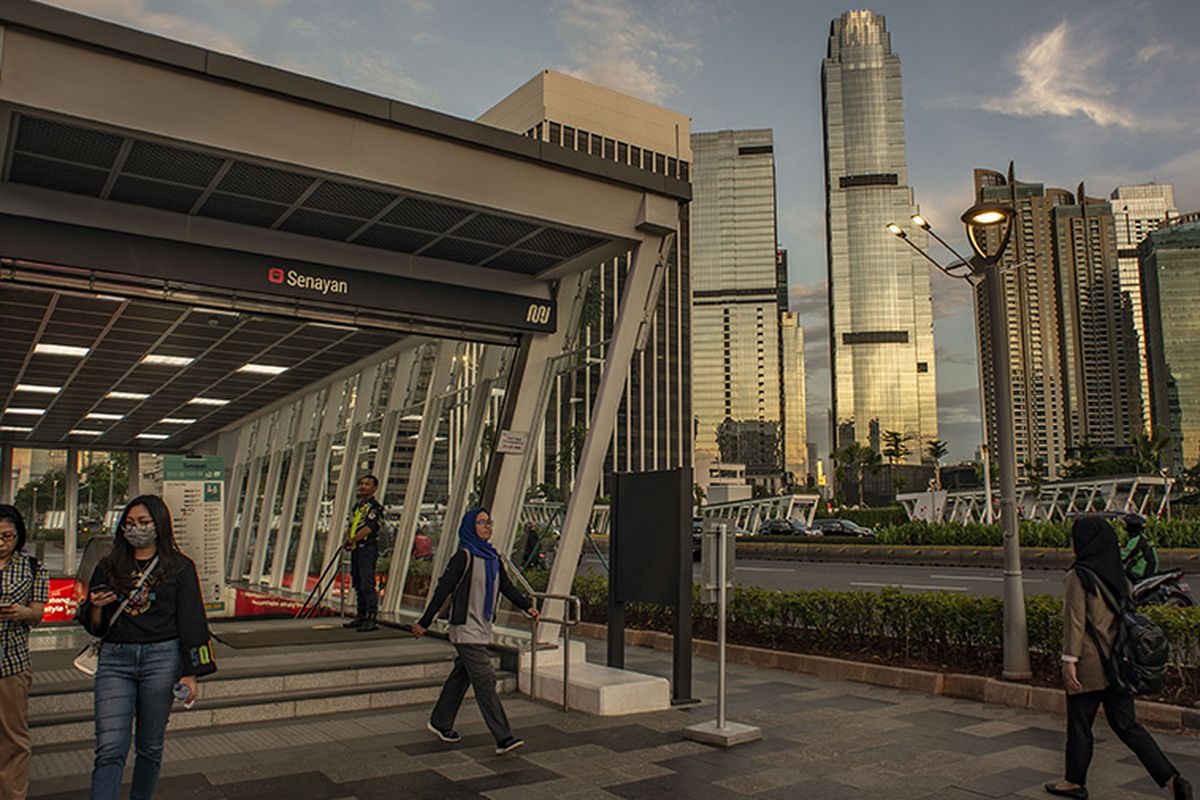
KOMPAS.com – Jakarta Governor Anies Baswedan has extended the capital’s transitional Large Scale Social Distancing (PSBB) by 14 days from July 1 after the number of Covid-19 cases in Indonesia's largest city showed no signs of abating.
While strictures during this period still remain less stringent compared to the first PSBB phase last March, Anies still concentrated on a number of places and aspects.
Read more to find out what parts of Jakarta life will be put under the Governor’s scrutiny.
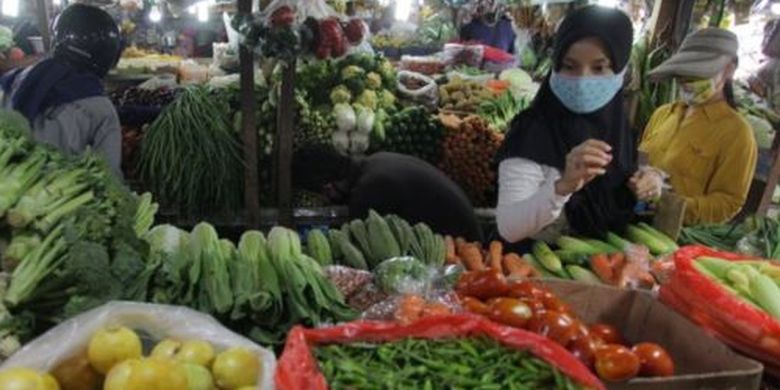 Customers at the Pondok Labu traditional market in South Jakarta
Customers at the Pondok Labu traditional market in South Jakarta1. Traditional markets and commuter trains
Anies put traditional markets and commuter trains going between Jakarta and the West Java satellite cities of Depok and Bogor on his list, as their Covid-19 transmission remain high.
Police and military personnel, as well as civil servants, will be posted on trains and traditional markets to ensure that visitor numbers do not breach the 50 percent capacity rule.
Also read: Jakarta Governor to Further Regulate Traditional Markets
However, this is offset by the easing of some measures from Thursday, July 2, such as the repeal of ‘odd/even’ regulations, in which odd or even numbered market stalls are only open on their respective days.
Anies also scrapped closing hours for traditional markets.
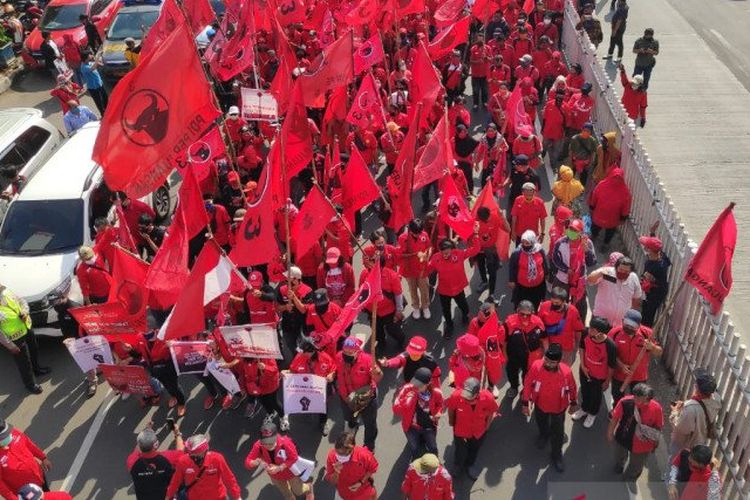 PDI-P cadres protest burning of party flag
PDI-P cadres protest burning of party flag2. Permits for protests
The transitional PSBB has seen a number of demonstrations, among them a protest action by conservative groups on guidelines for the Pancasila state ideology before Parliament last June.
Also read: Indonesia's Ruling Party Urges Police to Probe Burning of Flag
Anies has permitted the protest action to be organized as long as they adhere to health protocols. Protesters must also obey social distancing guidelines, he added,
He also pledged to work more closely with protest coordinators to ensure demonstrators will follow health protocols.
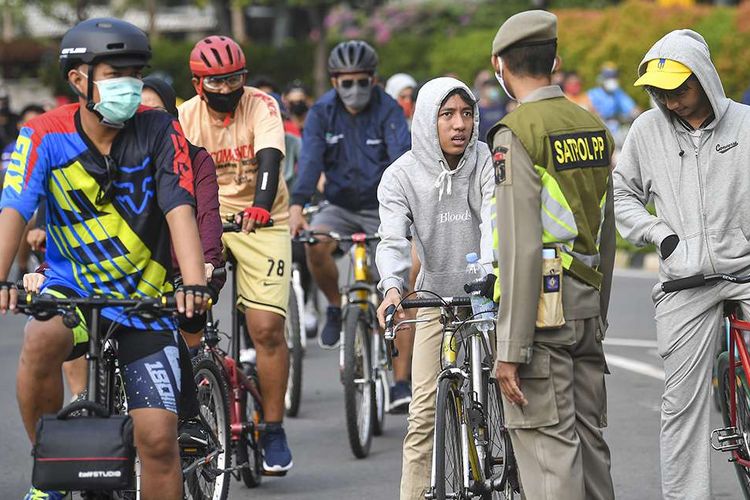 Jakartans bicycle during Car Free Day
Jakartans bicycle during Car Free Day3. Bicycling zones
Anies also transformed the Car Free Day activities every Sunday to Bicycling Zones.
Also read: Jakarta Discontinues Car Free Day
“If we changed Car Free Day to Bicycling Zones, it will prompt more people to bicycle instead of walking or running,” Anies said. “When they opt for bicycles, they are more likely to abide to social distancing.”
The Jakarta Provincial Administration spread the Bicycling Zones to 32 points throughout the capital.
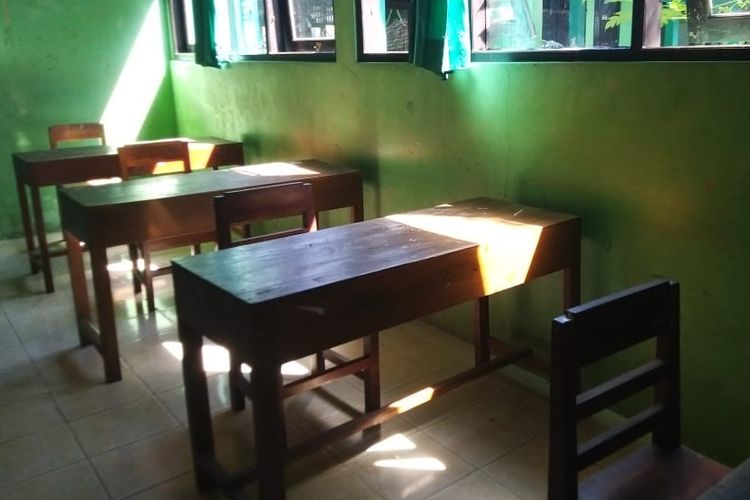 Schools in Jakarta remain empty as distance learning continues
Schools in Jakarta remain empty as distance learning continues4. Schools to remain closed
Anies noted that school buildings will remain closed, though the 2020–2021 academic year will start on July 13.
“Schools will carry on long distance learning at least for the time being.”
Also read: Classes to Stay Online in Indonesian Schools Until Further Notice
“We decided on this as children are particularly vulnerable to Covid-19,” Anies added.
To date, Jakarta has the highest number of Covid-19 cases among Indonesia’s 34 provinces, with 11.682 people stricken by the coronavirus. 646 Jakartans have died from the pandemic.
(Writer: Nur Fitriatus Shalihah | Editor: Sari Hardiyanto)
Simak breaking news dan berita pilihan kami langsung di ponselmu. Pilih saluran andalanmu akses berita Kompas.com WhatsApp Channel : https://www.whatsapp.com/channel/0029VaFPbedBPzjZrk13HO3D. Pastikan kamu sudah install aplikasi WhatsApp ya.































